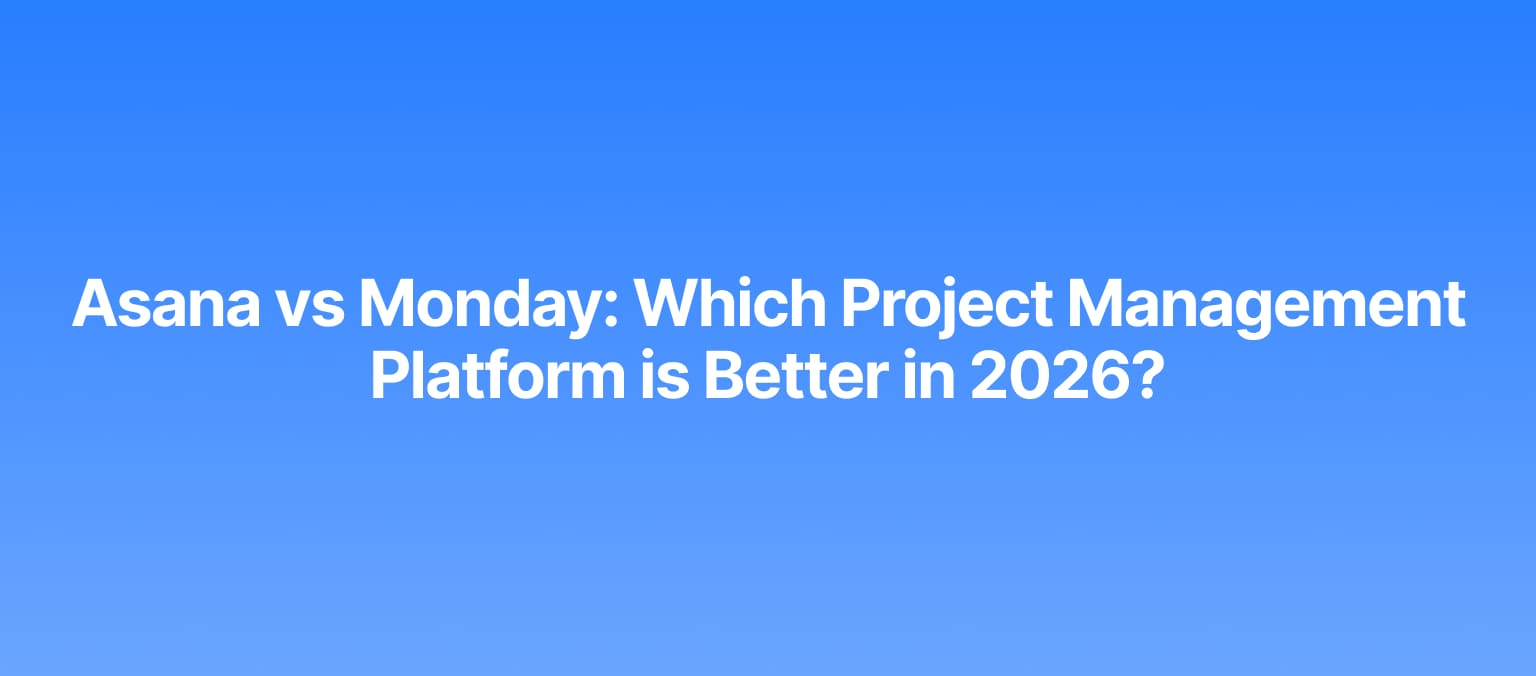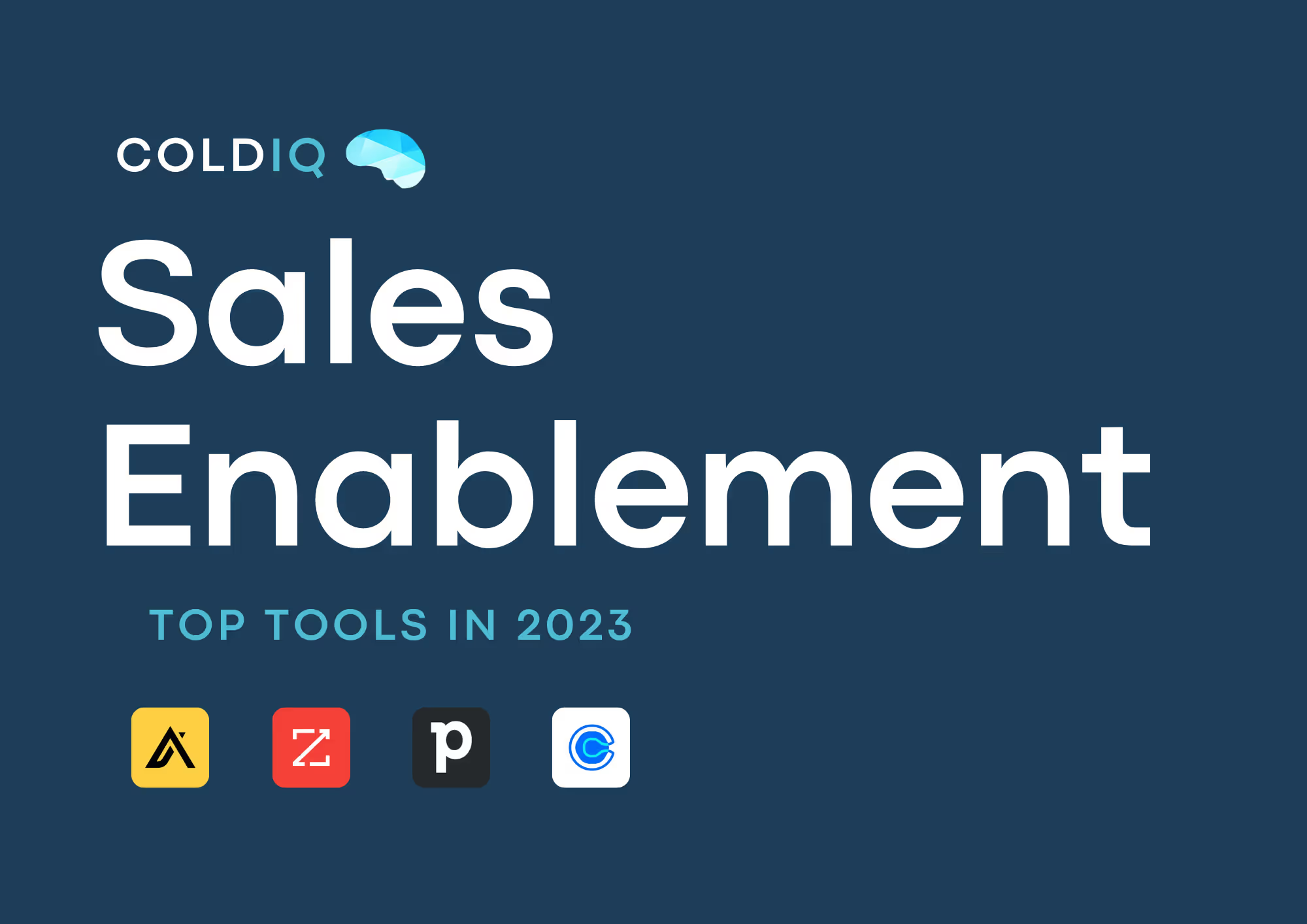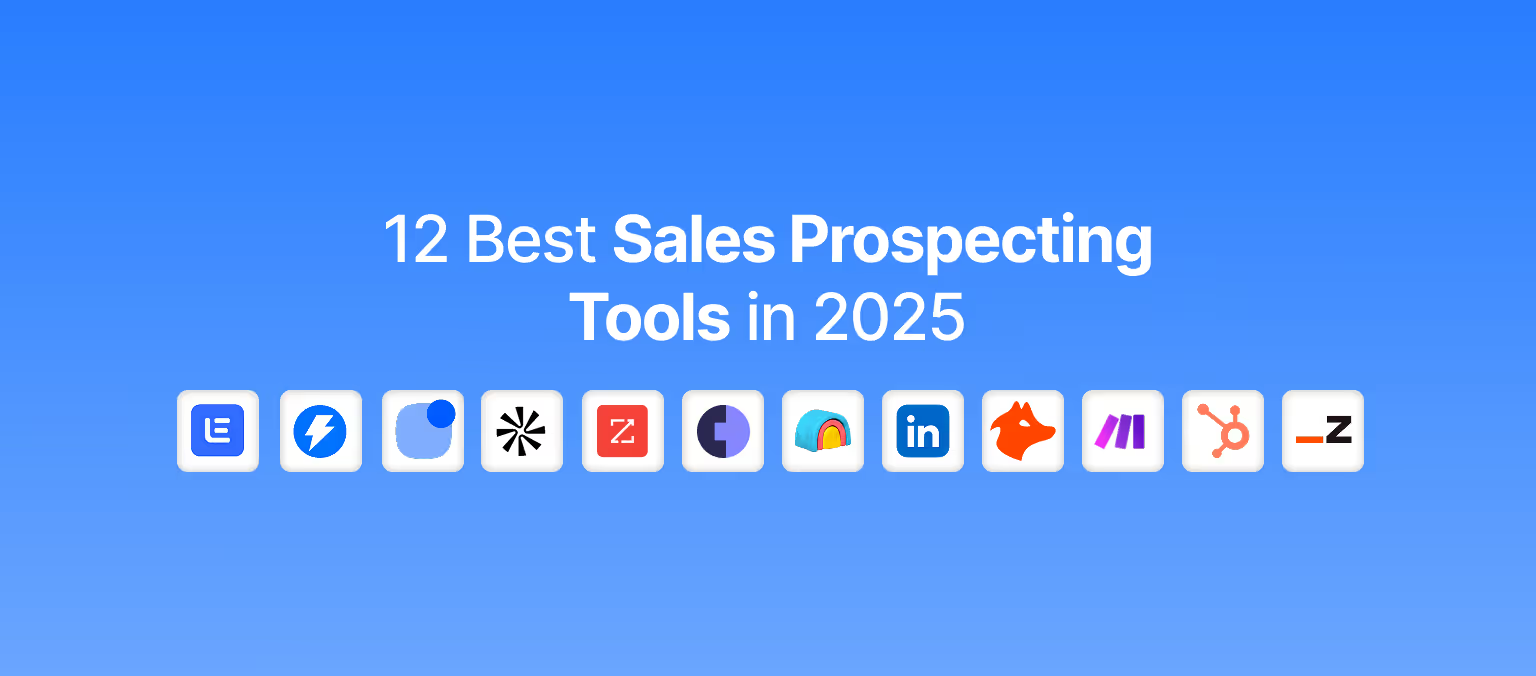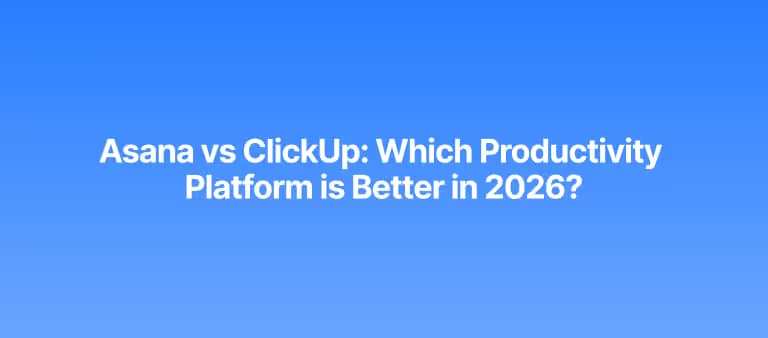RB2B vs Vector: Which Website Visitor Identification Software is Better? [2026]
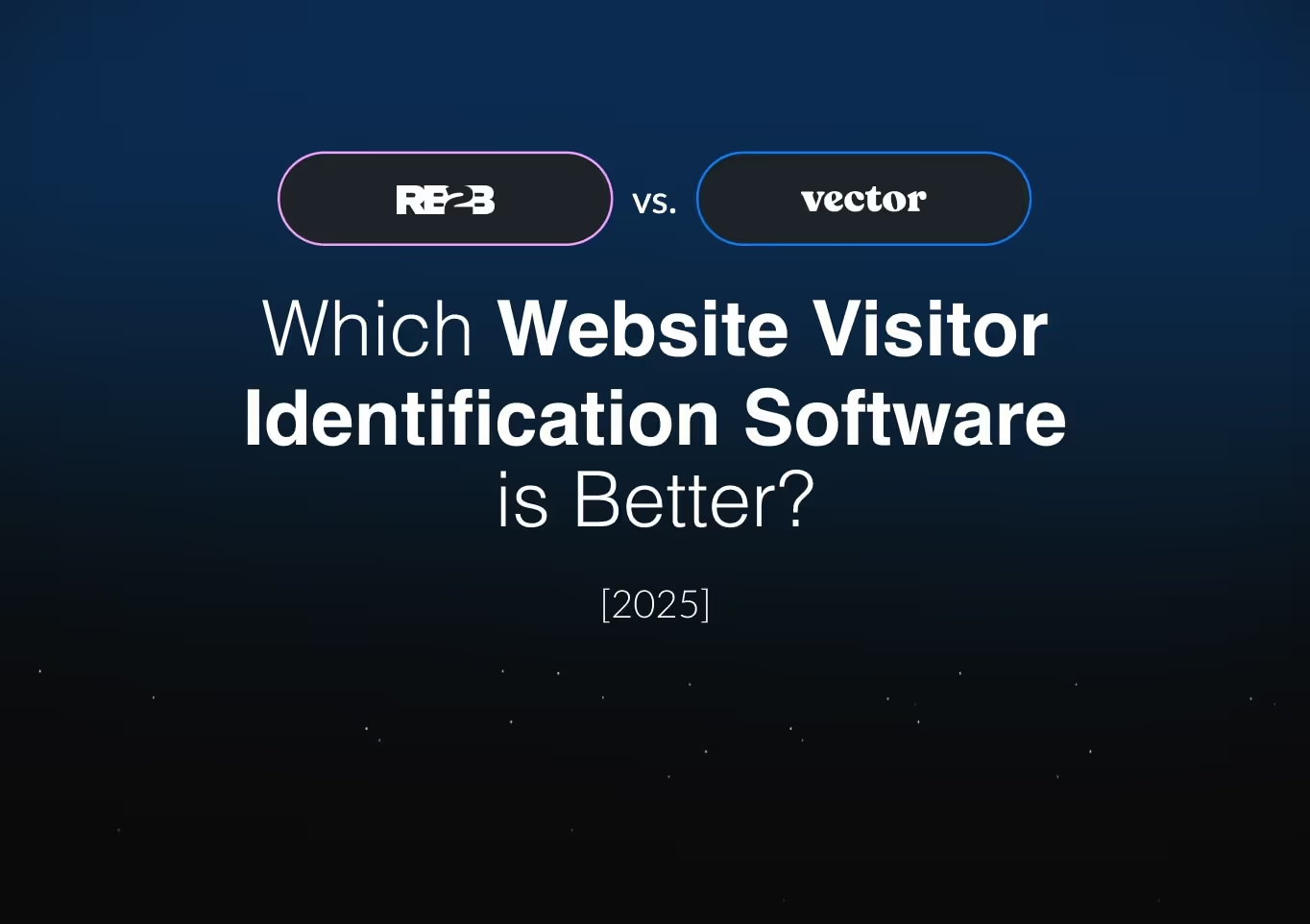
As a business owner, identifying your web visitors provides an advantage in fueling your sales pipeline. With their full details and browsing activities revealed you can create a personalized campaign that resonates with your visitors and nurture them through the sales funnel to increase your chances of conversion.
But, how do you do this?
Web visitor identification software like RB2B and Vector offer de-anonymization services to let you know the people or companies landing on your website. However, these tools slightly differ in operations. Dive into this comparison guide to know which is suitable for your business.
What’s RB2B?
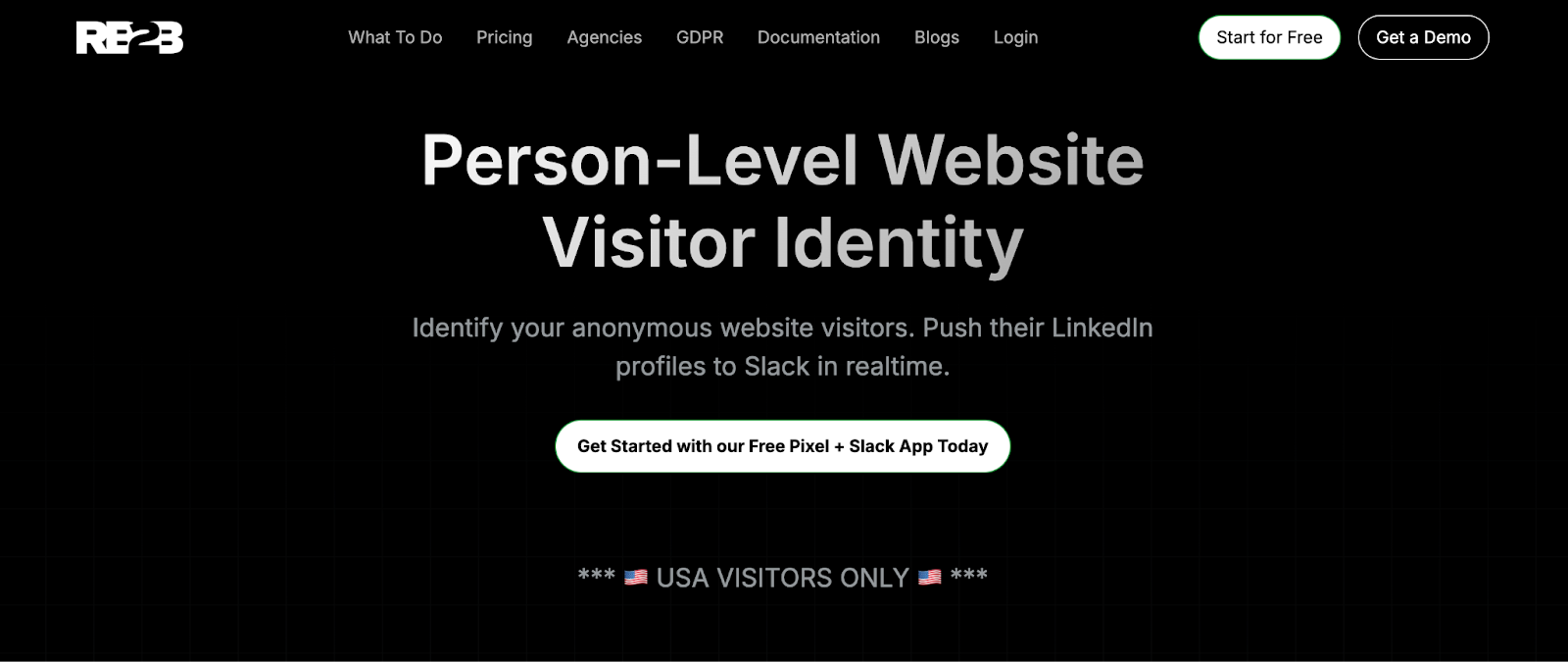
RB2B is a web visitor identification software that provides detailed information about the anonymous visitors landing on your website. With data such as web cookies, behavioral analytics, and IP address tracking, this software only targets US-based visitors. It provides their contact information such as full name, company name, email address, location, browsing behavior, and more.
Once this information is revealed, RB2B pushes them to your preferred CRM or Slack for your sales team to follow up. This approach ensures you identify potential leads interested in your business offerings and create a tailored outreach campaign that resonates and drives them to conversion.
What’s Vector?
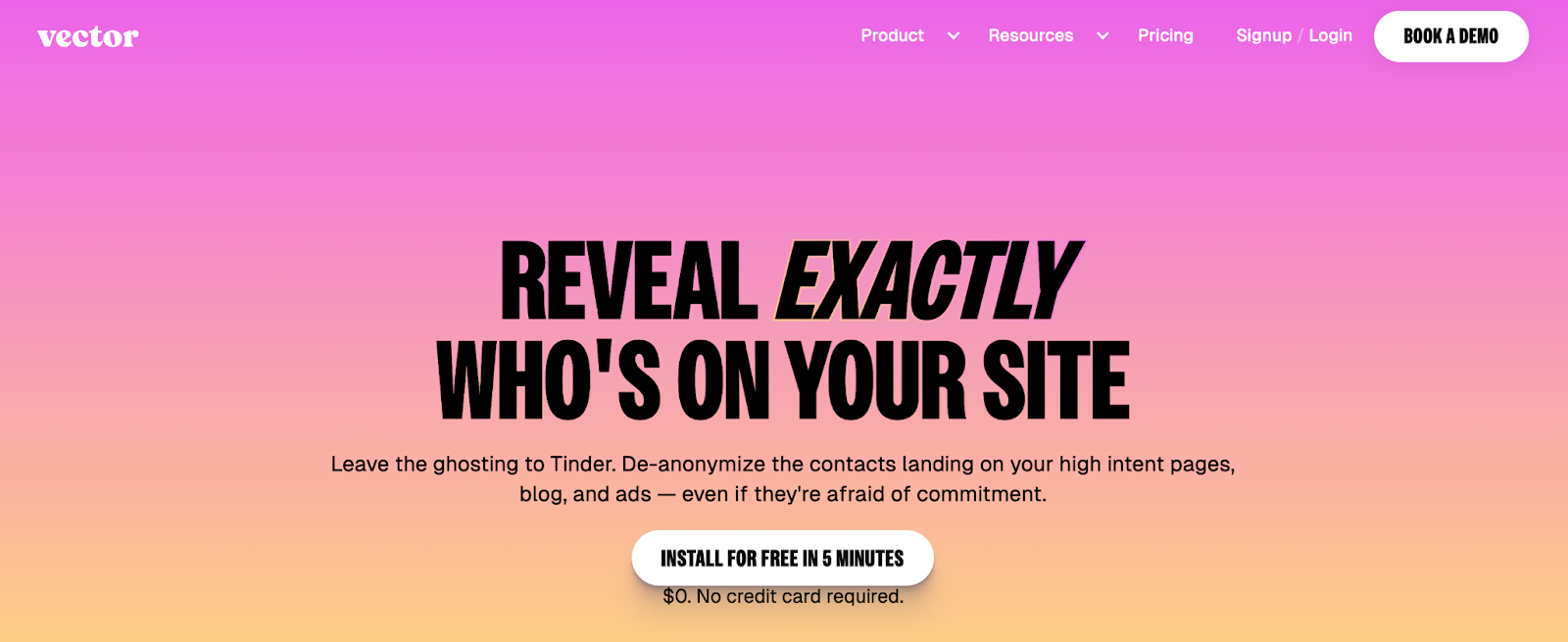
Vector is a contact-based marketing platform that offers de-anonymization services for its users. Its site de-anonymization feature uncovers detailed information about the US-based visitors (people or companies) landing on your website to explore your business’ offerings. You can use the software to access your prospect’s full name, email address, job title, company name, or location on channels like Slack.
Plus, the website de-anonymization software offers intent signals to track high-value clients searching for solutions similar to yours. This approach enables your sales team to focus on the most promising prospects that are more likely to convert. Vector integrates with various tools including CRMs and cold outreach platforms. Examples include HubSpot, Salesforce, Outreach, Clay, Apollo, and more. Overall, it’s a perfect choice for finding anonymous visitors landing on your website.
RB2B vs. Vector: Features Compared
RB2B and Vector share similar features to de-anonymize your web visitors and ensure you target them for increased conversion. These features include:
- Website Visitor Identification
- Intent Signals
- Integrations
- Regulations
Website Visitor Identification
Both RB2B and Vector help to identify the anonymous visitors landing on your website but with slightly different approaches.
RB2B
RB2B only tracks and identifies your website visitors from the US, making reaching prospects within this location easy. The web visitor identification process requires a few simple steps with RB2B. First, add the software’s unique tracking code to the header section of your website’s HTML. Website platforms like WordPress and Shopify offer plugins to simplify this process.
Once you add the code, you can visit your website to check if it works. The web visitor identification software uses website cookies, IP addresses, and device IDs to track and de-anonymize your web visitors, whether people or companies.
Your visitor’s details appear on the RB2B dashboard, providing detailed information such as the company name, job title, LinkedIn profile, pages visited, and more. It also includes company data such as location, size, industry, revenue, and more. With the data revealed, RB2B pushes this information to your Slack account for future purposes. Plus, see which other companies visit your website using our free similar companies checker.
Find Similar Companies for Free
Find companies like your target business. Use it right here, 100% free.
Vector
Similarly, Vector de-anonymizes contacts visiting your websites, whether the high-intent pages, blogs, or ads. Its installation process is similar to RB2B, where you must install a tracking code to your website’s header within five minutes.
Once this is done, Vector provides about 15-30% of the prospects visiting your sites, mainly US-based visitors to avoid legal issues with markets like the UK and the European Economic Area. It targets people and companies within the approved location, providing details such as their names, job titles, LinkedIn profiles, and recent browsing activities. With the de-anonymization process completed, Vector pushes its information to Slack or any desired integration system.
Intent Signals
RB2B and Vector provide buyer intent signals to identify warm leads visiting your website and create a personalized experience for these visitors
RB2B
RB2B’s hot lead and page tagging feature allows you to identify and segment your web visitors based on their intent signals. With the web visitor identification software’s hot page tagging feature, you can identify visitors who show deep interest in your business’s solutions. The software leverages its custom tag to track accounts that visit high-intent pages such as the pricing and comparison pages, case studies, or demo requests.
On the other hand, RB2B’s hot lead tagging feature allows you to segment your web visitors based on these intent signals. The web visitor identification software applies custom tags to segment the identified leads with your ICP. This approach enables your sales team to focus on high-value prospects and create a tailored marketing campaign to fit their needs, increasing the chances of conversion.
Vector
Vector also offers 1st-party signals on any contact visiting your website If you’re looking for your potential customers or a specific competitor, it has a library of relevant topics which you can leverage to ensure you don’t miss out on any sales opportunities. It provides the accurate intel needed to identify those interested in your business’s solutions.
Integrations
Integrating with third-party platforms creates a seamless data transfer, allowing you to access and make informed decisions from a single platform. RB2B and Vector integrate with different third-party platforms to achieve this purpose.
RB2B
RB2B integrates with various CRM and marketing automation platforms to store and act on the received information. For instance, once it identifies your anonymous web visitors, it pushes your lead’s LinkedIn profiles to Slack where you can implement an outreach strategy. Other platforms RB2B integrates with include Clay, Apollo, Instantly, Zapier, Smartlead, Koala, HeyReach, and more.
Vector
Similarly, Vector also integrates with third-party platforms such as CRMs and sales intelligence tools. Once it identifies your web visitors, you get a notification from Slack from where you can act on the data. Some of its common integrations include HubSpot, Salesforce, Clay, Apollo, Outreach, Marketo, Slack, Webhook, Salesloft, and more.
Regulations
Ever think you’re violating some laws using the web visitor identification tool? Not at all. RB2B and Vector comply with local and international regulations, ensuring you don’t face any legal issues.
RB2B
RB2B only targets US-based visitors, making it non-applicable to GDPR-bounded areas such as the United Kingdom or the European Economic Area. In other words, users don’t have to worry about violating GDPR policies. Besides, RB2B complies with local laws like the California CCPA, CPRA, and other state laws. It only targets US-based IP addresses and delivers profiles within such locality.
Vector
Like RB2B, Vector also targets US-based visitors. It doesn’t fetch profiles from European-based countries, making it compliant with regulations like GDPR. Also, the web visitor identification software complies with state laws like the California CCPA and CPRA. It doesn’t track data in states where its activities aren’t approved.
RB2B’s Pricing
RB2B offers a 7-day free plan that grants 150 credits to explore some of its features. Users get to anonymize web visitors and push their information to Slack.
However, suppose you need to export your data from the platform or integrate it with a third-party tool. In that case, you may want to consider some of the business’s premium versions to access more features including integrations. These paid plans include:
- RB2B Pro is $149 per month and offers 300 credits.
- RB2B Pro+ for $349 per month and offers 1,000 credits.
- RB2B Custom requires a custom quote and offers over 2,000 credits.
Vector’s Pricing
Vector also offers a free trial to explore its products. However, this plan has limited features. Users who need to access more features require paid plans. These paid plans cost $4,500 per quarter and $15,000 per year.
Additional features such as custom intent topics that provide your business's intent keywords cost $100 per month. Meanwhile, the email enrichment feature that provides valid email addresses costs $199 monthly.
RB2B vs. Vector: Pros and Cons
RB2B and Vector have unique strengths and weaknesses that could affect the user's experience. We analyzed review sites like G2 to pinpoint some of these factors and determine what to expect from the platform.
RB2B Pros and Cons
RB2B is notable for its easy configuration, lead generation capabilities, and detailed information revealed during the identification process to boost sales efforts. However, it suffers criticism for its limited integrations and credit pricing system.
RB2B Pros
- Easy Configuration: Many G2 users commend RB2B for its easy setup. It requires no technical knowledge, making its adoption process suitable for new users. All they need to do is add the unique tracking code to the website’s header to begin the identification process.
- Lead Generation: With your web visitors identified, RB2B floods your sales pipeline with potential leads you may not discover via your usual routine. This approach ensures you don’t miss out on potential sales opportunities for your business.
- Personalized Experiences: RB2B provides real-time data into your site’s visitor activities. For example, when you know your site’s visitor landed on a webpage like the pricing, you can leverage this information to tailor the outreach campaign to fit your lead’s needs, creating a personalized experience that resonates with them on a deeper level.
RB2B Cons
- Limited Integrations: RB2B integrates with only a few tools, preventing users from transferring data seamlessly between systems.
- Pricing: The platform’s credit pricing system is a major drawback as users can quickly run out of them depending on their site’s traffic.
Vector Pros and Cons
Vector shines for its ease of use, data accuracy, and customer support. However, it faces backlash for its integrations and pricing model.
Vector Pros
- Ease of use: Vector is easy to use, as it takes about five minutes to install a piece of code and begin the installation process. This makes its adoption easy for new users.
- Data Accuracy: Vector’s users boast accurate data to perform their tasks efficiently. This data enables you to reach your prospects with tailored campaigns that resonate with them.
- Customer Support: Vector offers an onboarding experience to help users get acquainted with the tool. Plus, its customer support strives to ensure you have a smooth experience, answering any question and resolving any issue that may arise with usage.
Vector Cons
- Integrations: Vector integrates with limited tools, which could inhibit your workflow. There is a need for more platforms to integrate with the web de-anonymization software.
- Pricing: Unlike RB2B’s monthly fee, Vector’s pricing model is quarterly and annually. This plan may be expensive for users, especially small teams or businesses.
RB2B vs Vector: Which is Better?
Overall, RB2B and Vector have similar features for identifying and reaching the web visitors landing on your website. You can only spot the differences when you deeply examine how they operate. These differences include:
- Vector’s pricing option is expensive for small teams and businesses. Standing at $4,500 per quarter, its service comes at $1,500 per month, unlike RB2B’s plans which cost $149 or $349. Any business seeking to start small and scale as it grows will prefer RB2B’s more affordable yet powerful service.
- Vector doesn’t offer custom tags to segment your leads. It only provides first-party intent signals to identify trending topics and discover your competitors. On the other hand, RB2B offers the hot lead and hot page tagging feature that leverages intent signals to track qualified sales opportunities for your business. It also uses customized tags to segment your lead list for a better experience.
If you intend to maximize your web visitor identification’s full potential, we recommend partnering with ColdIQ. Our sales experts understand every nook and cranny of these AI sales tools and utilize them to flood your pipeline with qualified sales opportunities. Get in touch with us today to get started.
FAQ
Visitor identification suits companies with complex sales cycles or high-value clients. B2B firms especially win by turning anonymous visits into actionable leads, improving follow-up precision and reducing cold outreach failures. Smaller firms can benefit if they target precise customer profiles.
Most tools use aggregated, non-personal data and comply with strict privacy laws like CCPA and GDPR. They avoid tracking outside approved regions and anonymize certain visits to respect privacy. Businesses should still inform visitors through privacy policies about data use.
Is visitor identification useful for websites with low traffic volumes?
What kinds of visitor behaviors indicate strong purchase intent?
Let's Get Started!
Schedule a 30-minute call with ColdIQ leadership to learn how our outbound strategy and sales tools help generate qualified leads and close deals.
.avif)
.svg)


